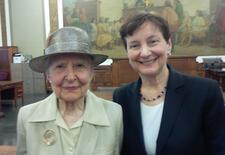Viola Brothers Shore
Viola Brothers Shore was an accomplished writer, poet, and screenwriter during the 1920s and 1930s. In addition to writing for numerous publications, she wrote silent movie titles and original stories for many films and won awards for her may mystery stories.
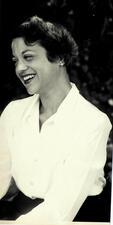
Wilma Shore
Wilma Shore was a writer and teacher most active between the 1940s and the 1960s. She lived at various times in Los Angeles and New York City, settling finally in New York City. Involved with left-wing political activity, she and her husband were blacklisted during the House Committee on Un-American Activities hearings.

Rochelle Shoretz
Rose Shoshana
Rose Shoshana began her acting career in the Yiddish theater world, playing Manke in Got fun Nekome in 1908. She went on to perform across Europe, America, and Asia. When she arrived in New York in 1946, she began a career as a novelist, writer, translator, and journalist at the Forverts.
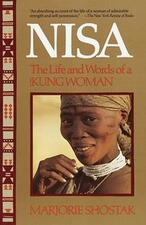
Marjorie Shostak
Elaine Showalter
Elaine Showalter is a pioneer of feminist criticism. She is best known for inventing the term “gynocriticism,” a new theoretical framework that argued that that women had been using the language of men for far too long and that they needed to develop a new critical approach to better understand the female subcultures that operate within male-dominated power structures.
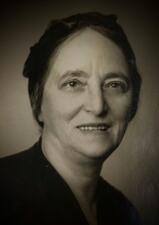
Chana Shpitzer
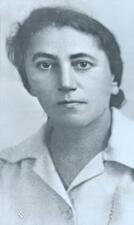
Miriam Shtarkman-Verlinsky
Miriam Shtarkman-Verlinsky was a trailblazer for women in the legal field in Israel, with a lifelong dedication to Zionism and women’s rights. Shtarkman-Verlinsky was the second women to become a judge in the newly established state and the first to become a Chief Magistrate.
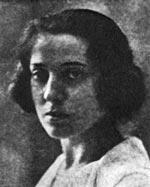
Fradel Shtok
Fradel Shtok’s Yiddish poetry and prose is distinctive for its treatment of the inner sensual lives of Jewish women. Although she showed great promise as writer, she was discouraged by the unenthusiastic reception of her work by leading critics and withdrew from the literary scene after publishing only one collection of short fiction in 1919. A number of Shtok’s poems appeared in American Yiddish literary journals and anthologies, but no collection of her poetry ever appeared.
Shua's daughter: Midrash and Aggadah
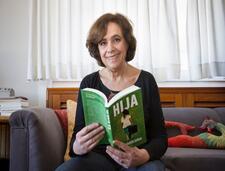
Ana María Shua
Ana María Shua is an Argentine writer and screen writer who is internationally known as a specialist in short stories, in particular micro fiction tales, which are stories of just two or three lines of extension. She is well known in the Hispanic world as the Queen of the Microstory and employs her writing to narrate various aspects of the Jewish experience.
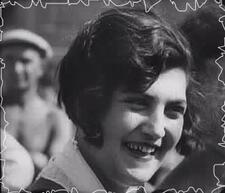
Esfir Il’inishna Shub
Esfir Shub was active as an editor, director, and writer of nonfiction films for twenty years, from 1927 to 1947—one of the few women in the Soviet Union at that time to achieve some standing in the film industry. Shub found success as a woman in the film industry by pioneering the form of compilation documentary and by producing technically competent work that satisfied the political needs of the communist moment.
Shulammite: Bible
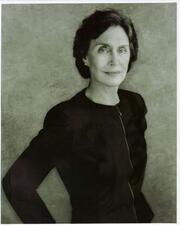
Alix Kates Shulman
Alix Kates Shulman is a radical feminist writer and activist and a leader in the second-wave feminist movement of the 1960s through 1980s. She is best known as the author of “The Marriage Agreement” (1970) and the best-selling Memoirs of an Ex-Prom Queen (1972), which was heralded as the “first important novel of the Women’s Liberation movement.” She was honored with a Clara Lemlich Award for a lifetime of social activism in 2018.
Dora Shulner
Dora Shulner was a Yiddish writer who vividly evoked for her readers life in the Pale of Settlement before, during, and after the Russian Revolution and Civil War. She candidly portrayed women in their most intimate relationships with men, revealing the complexity of their disappointments and aspirations.
Lillie Shultz
Lillie Shultz poured her boundless energy into all aspects of her life. She was a journalist, a Zionist, a champion of the oppressed, a skilled administrator, and a businesswoman.
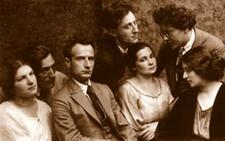
Esther Shumiatcher-Hirschbein
Yiddish writer Esther Shumiatcher-Hirschbein was born in Belarus in 1899 and emigrated to Calgary, Canada, with her family in 1911. Her poetry devoted to her pregnancy and childbirth were considered groundbreaking, along with other themes in her work, including grief, marriage, sexuality, and widowhood.
Shunammite: Bible
The “great woman of Shunem” appears twice in the narratives about the ninth-century B.C.E. prophet Elisha. Her title suggests wealth, but also, as the story unfolds, independence of mind and faith.
Shunammite: Midrash and Aggadah
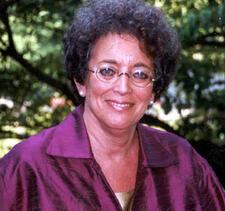
Betsy Shure Gross
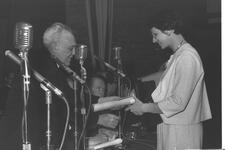
Judith Tannenbaum Shuval
Judith Shuval is one of the main scholars in the field of the sociology of health in Israel. Her research on migration and health, inequality in health, self-care in health, the doctor-patient relationship, and the processes of professional socialization has been based in concrete life in Israel and has broader implications for such topics cross-culturally.
Sylvia Sidney
Feisty and opinionated, Sylvia Sidney was quite the opposite of the waiflike victim of social oppression she played in Hollywood’s Depression Era films. While she disliked playing the victim, her vulnerability and working-class persona resonated with audiences. She earned an Oscar nomination for her performance in Summer Wishes, Winter Dreams, took on a comic role as the caseworker in Beetlejuice, and played a sympathetic grandmother in one of the first TV movies about AIDS, An Early Frost.
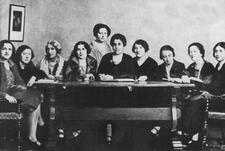
Rebecca Sieff
Rebecca Sieff, the daughter of a wealthy Jewish family from Manchester, England, played an active role in two central social-historical movements: the struggle for women’s rights and the Zionist movement that eventually led to the establishment of the State of Israel.
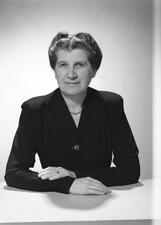
Ida Lewis Siegel
Ida Lewis Siegel was a volunteer leader in Toronto dedicated to Zionism and education. Siegel’s organizing talents over the decades benefited many Jewish community institutions, including the Youth Aliyah. She was also involved in the wider Toronto community, serving as a trustee of the Toronto Board of Education.
